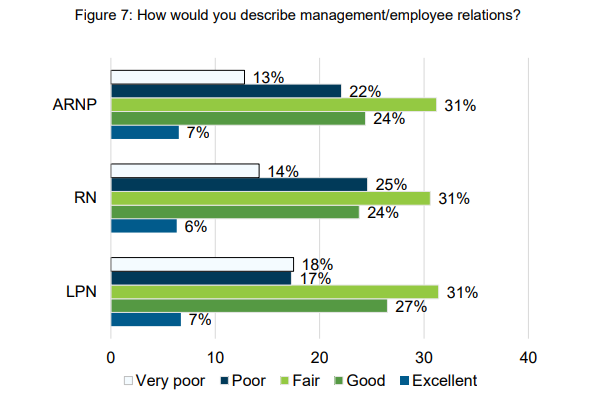PRESS RELEASE
October 2022

Contact: Brenda Little
WCN Communications Associate
Ph: 206.787.1200 x103
Email: brendal@wcnursing.org

The Washington Center for Nursing (WCN), the state’s nursing workforce center releases its second COVID-19 Impact on the Nursing Workforce Study conducted by Survey Information Analytics (SIA). The study aims to understand better the ongoing challenges faced by Washington nurses responding to the second year of the COVID-19 pandemic.
As the pandemic wears on, it is critical to capture nurses’ experiences as they navigate fluctuating policies, staff shortages, patient overload, mistreatment, and burnout. The effects of COVID-19 on the state’s nursing workforce should serve both as a warning and an imperative for system-wide change and future improvement to strengthen healthcare delivery in our state.
The WCN completed the study at the request of the Washington State Department of Health. This study is a follow-up to last year’s WCN report on how COVID-19 impacted the nursing workforce in Washington during 2020. Through surveys and interviews with Licensed Practical Nurses (LPNs), Registered Nurses (RNs), and Advanced Registered Nurse Practitioners (ARNPs), this follow-up study looks to document the experiences of Washington’s nurses as they continue to be impacted by the pandemic.
Conducted between April and June 2022, SIA surveyed 1,298 nurses who held active nursing licenses about their experiences during 2021. Key findings from the survey found that of the nurses surveyed:
- 54% thought about or made plans to leave the field of nursing. (Up 12% from the 2020 study.)
- 70% reported moderate or extreme COVID-19 related staffing concerns.
- 64% reported moderate or extreme concern for their friends’/family’s safety.
- 67% believed their employers provided adequate quarantining for employees who may have been/were exposed to COVID-19.
Additionally, the following themes emerged from SIA’s 12 follow-up in-depth interviews:
- Staffing issues and the focus on travel nurses to the detriment of other nurses
- Mental and behavioral issues
- Workload and monetary compensation
Analysis in the report identified the following critical issues faced by nurses during the ongoing pandemic; staffing issues; access to mental health and self-care resources; general health and safety issues related to personal protective equipment (PPE), testing, and vaccines; changes in patient-nurse interactions; employer support (or lack thereof); and the effect of these issues on career plans.
Staffing
‘Another key aspect of staffing issues identified by participants centered on policies and practices that enabled hiring or replacement of managerial and administrative staff (or traveling nurses) while permanent, direct, or teaching nursing staff were not replaced in what was considered to be a timely or efficient manner. As one ARNP in outpatient care put it during the interview, “Perhaps not hiring more upper admin people and instead focusing on people who can provide care…6 admin layers is probably too many.” ‘ (pg. 12)
‘ “…Management at our hospital does not realize that nurses can only do so much and perform at max capacity for so long until we will break – and quit” (RN, 2022).’ (pg15)
General health and safety issues related to PPE, testing, and vaccines
‘The data from the follow-up survey indicated that 61% of respondents were still somewhat-to-extremely concerned about access to adequate test kits and 67% were still somewhat-to-extremely concerned about access to quality and effective PPE. Thus, these are still safety issues for many nurses in Washington.’ (pg. 19)
Changes in patient-nurse interactions
‘ “Trying to convince an extremely vaccine reluctant population to get vaccinated, people were stressed out. It felt like an impossible uphill battle, and it was demoralizing…. My patients were lying to me, with known exposure with symptoms, and known positive [test results] and didn’t disclose until the end [of the visit] because of ignorance or because they didn’t want to reschedule – that was infuriating” (ARNP, 2022).’ (pg. 20)
Employer support
‘35% of ARNPs, 39% of RNs, and 35% of LPNs indicated that relations between management and employees were poor or very poor.’ (pg.22-23)
While data from the 2021 study came from a convenience sample and several focus groups, this year’s study was collected from a representative sample followed by one-on-one interviews.
Employer support
‘35% of ARNPs, 39% of RNs, and 35% of LPNs indicated that relations between management and employees were poor or very poor.’ (pg.22-23)

While data from the 2021 study came from a convenience sample and several focus groups, this year’s study was collected from a representative sample followed by one-on-one interviews.
